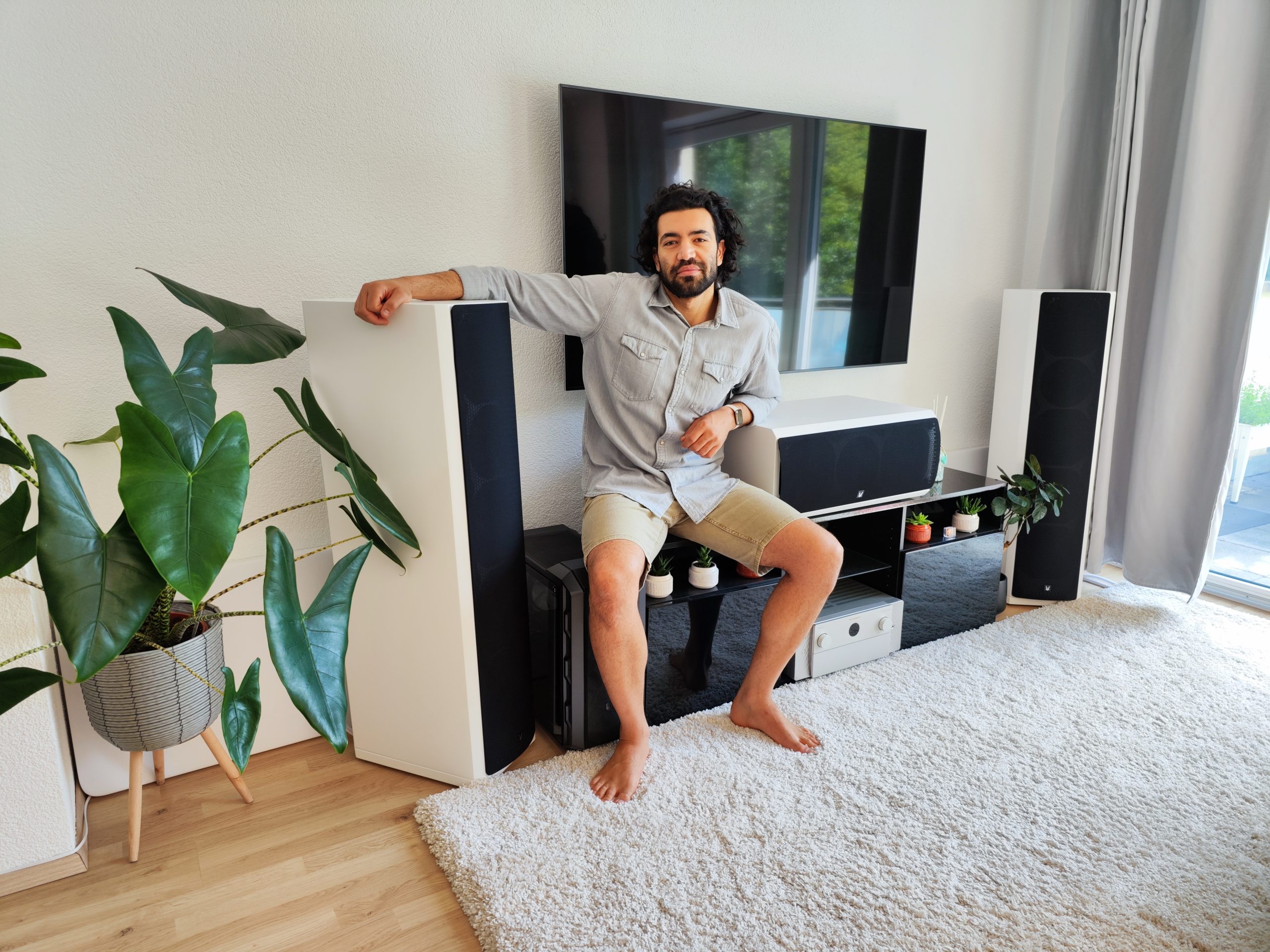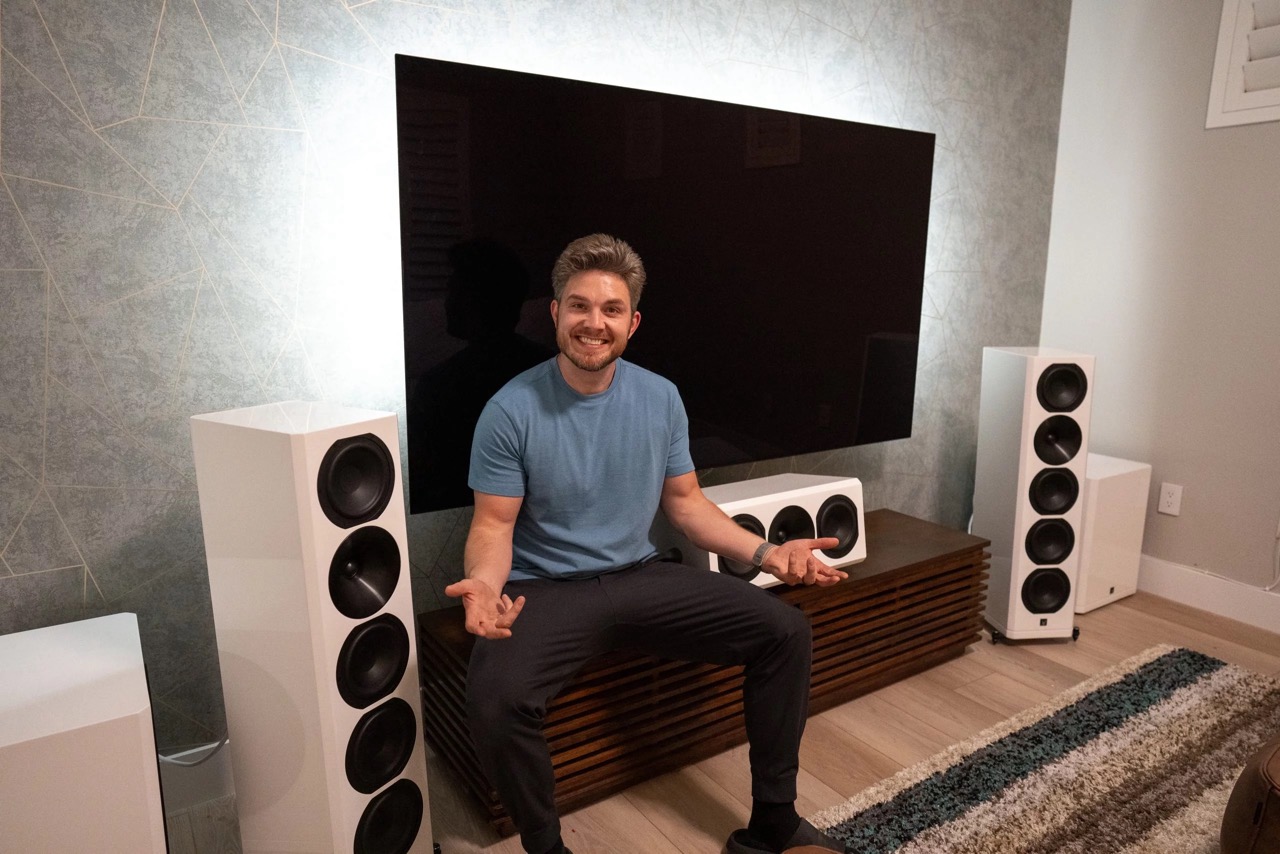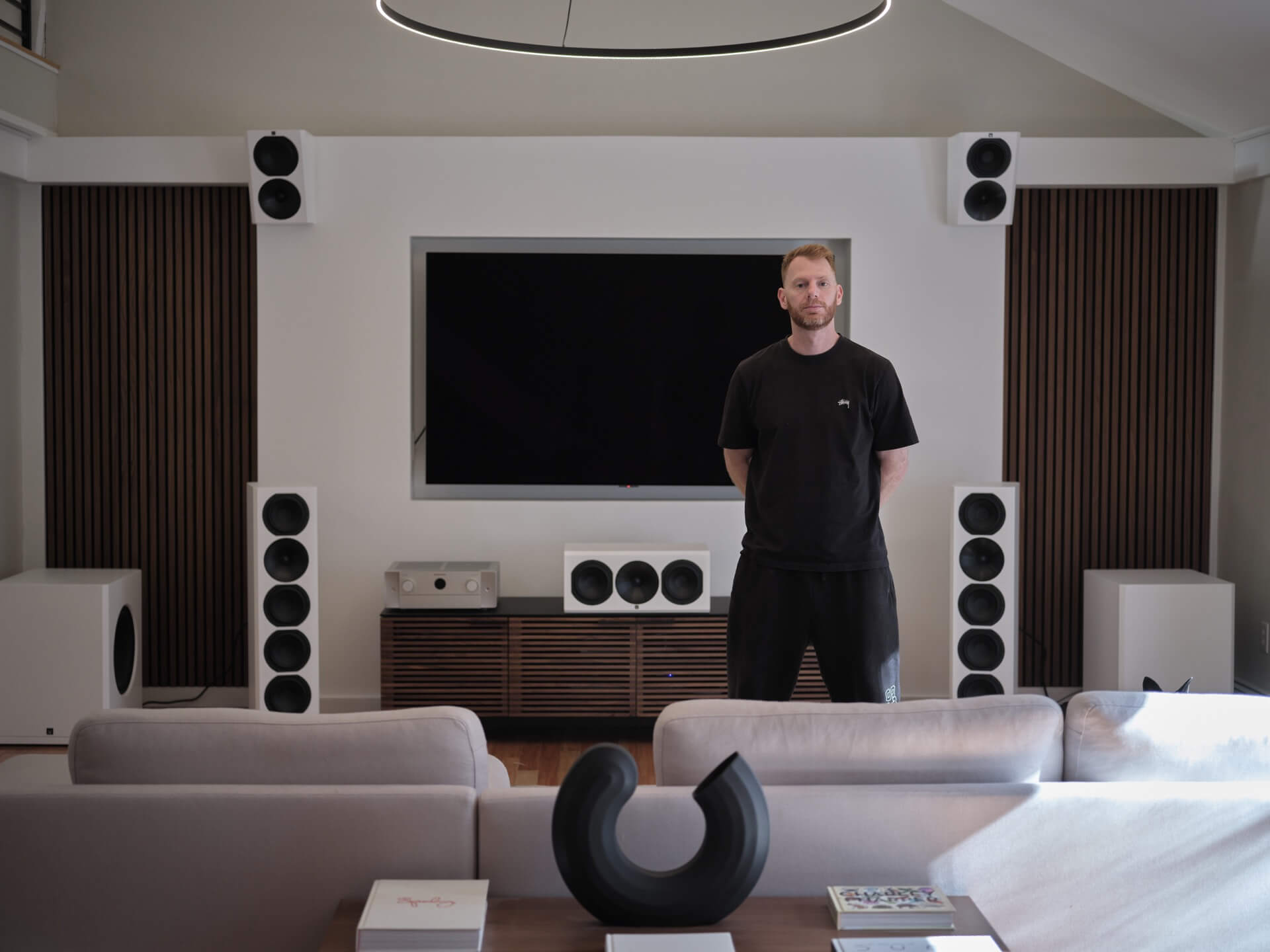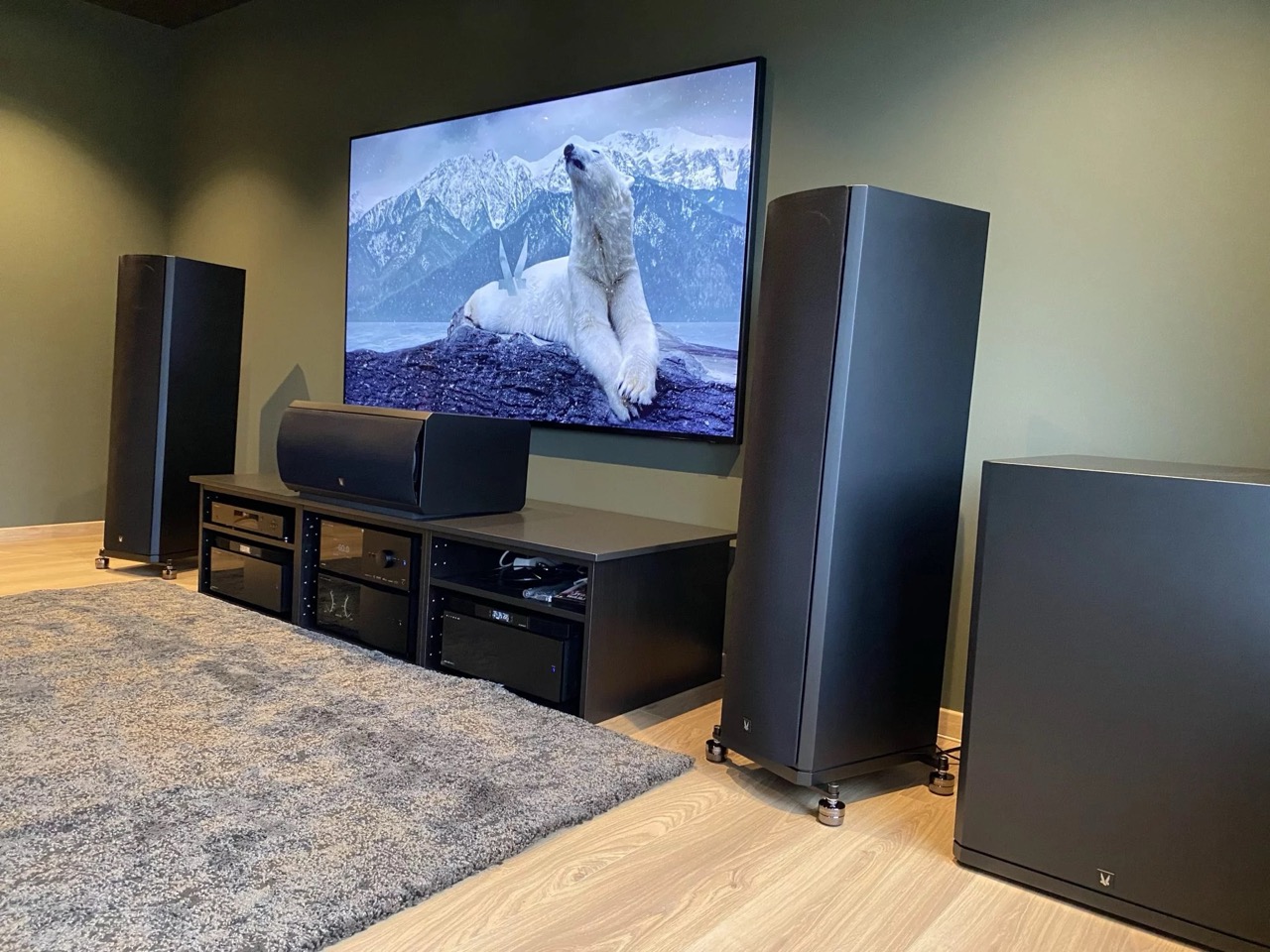In short; speaker sensitivity is a measurement of how loud a given speaker will play, when fed a signal of 2.83 Volts, measured at 1 meter (~3,3 feet) away. This will indicate how much power a speaker will need to reach a certain SPL (sound pressure level). That means that a bookshelf that has a sensitivity of 84dB, will require more power to achieve the same SPL as a tower speaker that has a sensitivity of 92dB.
Will it be a problem that my surrounds have a different sensitivity from my fronts?
No, and there are numerous factors as to why: In almost all scenarios, the surrounds are mounted closer to the listening position than the fronts. That means they lose less output due to distance. The other factor is that one of your AVR’s main objectives is to level-match all your speakers. This basically corrects any level difference between the speakers to make the sound as cohesive and seamless as possible.








